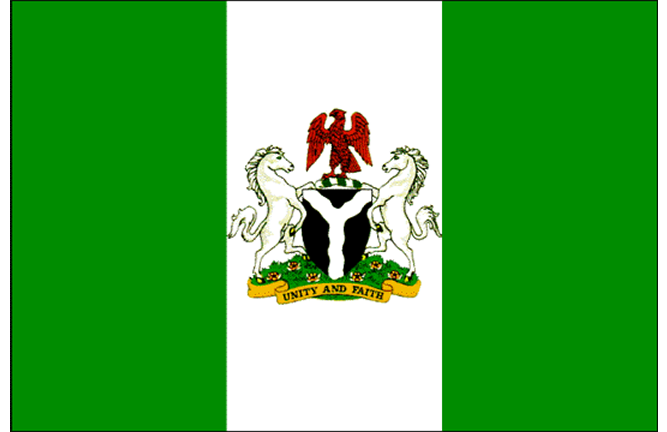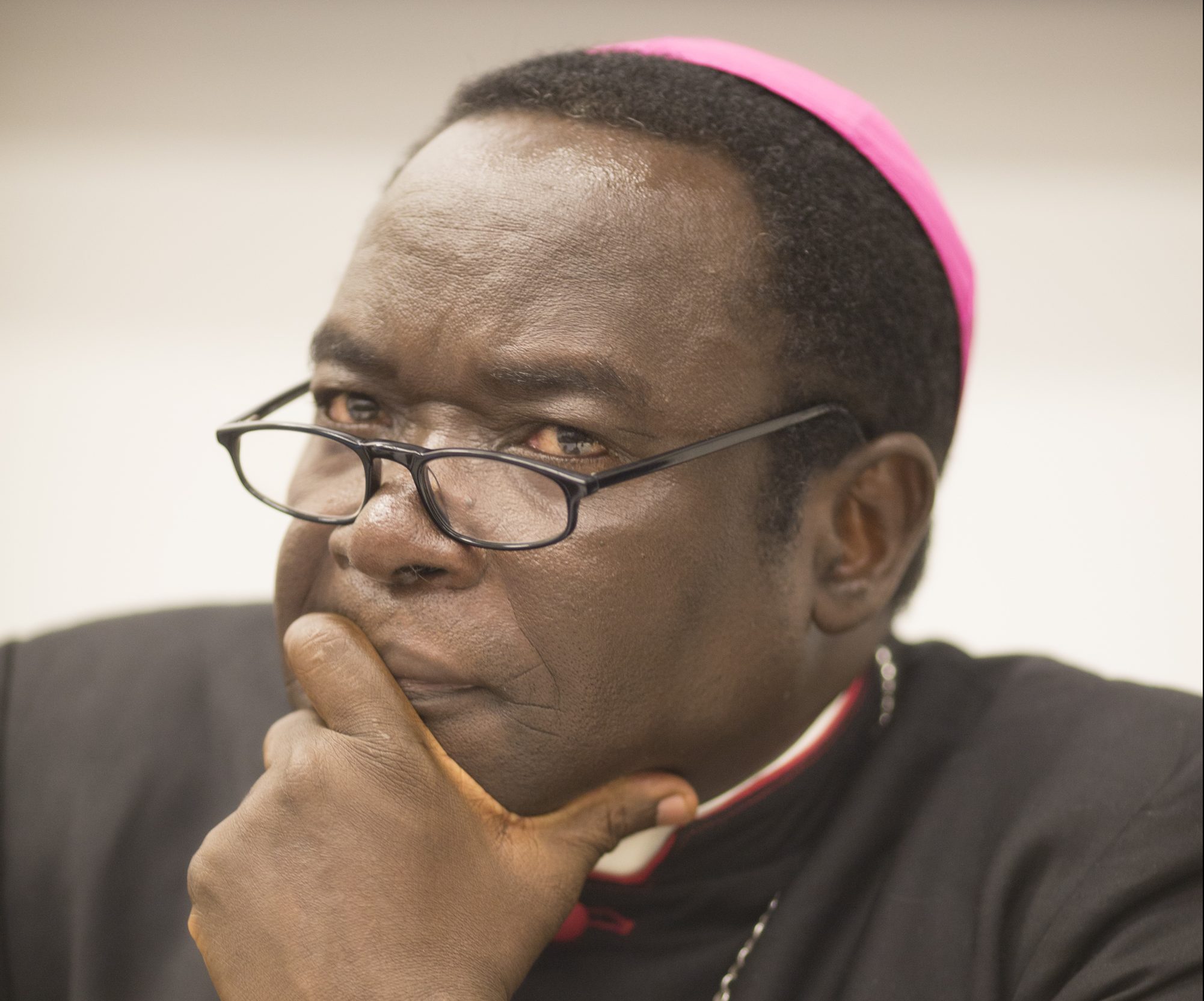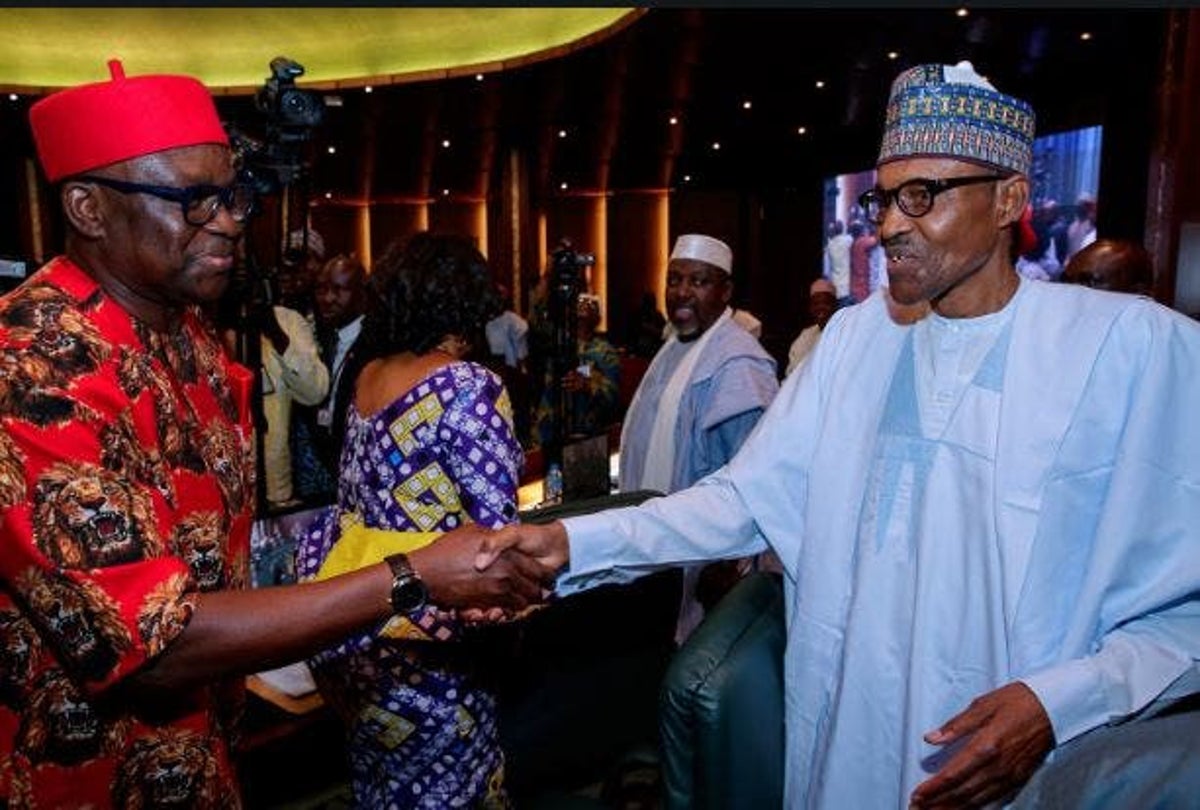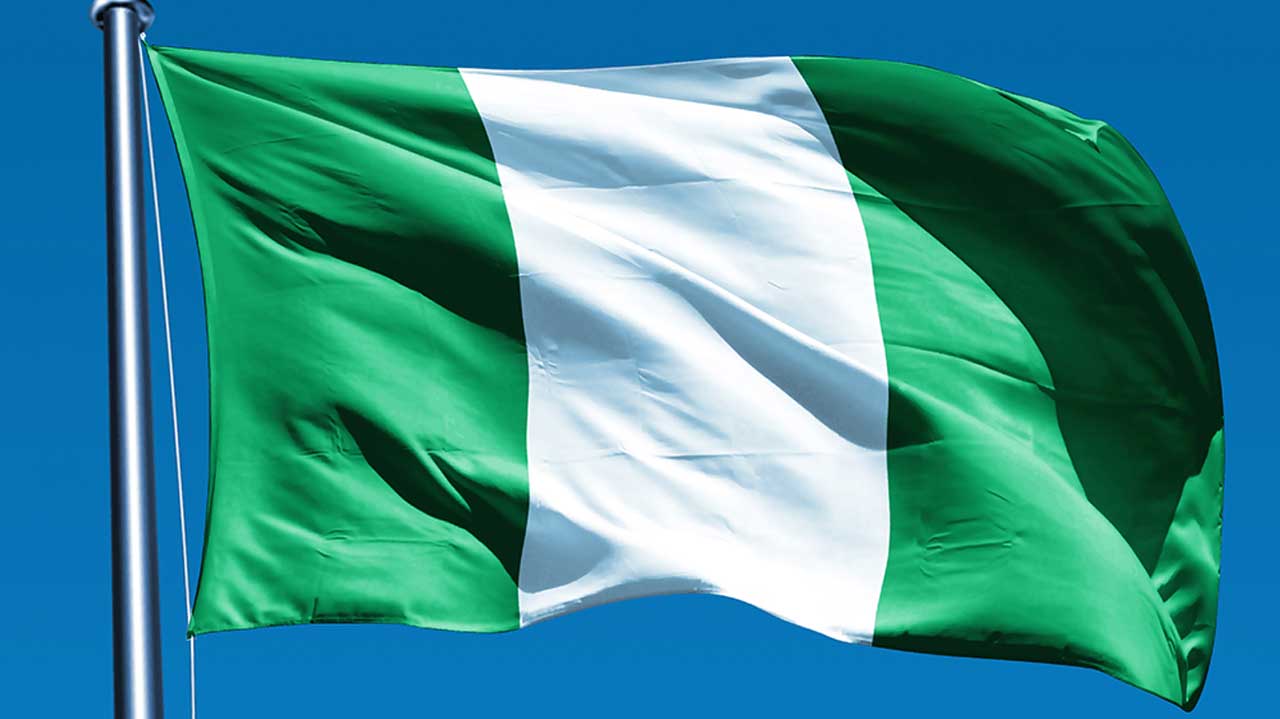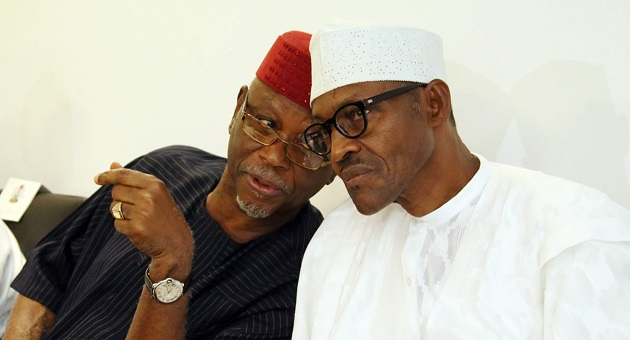By Magnus Onyibe
At 60 years old, any human being that has not become accomplished or had his/her life anchored on any established and sustainable means of livelihood, would effectively be said to be going through post mid-life crisis.
So when Nigeria turned 59 last year, precisely, on 3rd October 2019, l wrote and published in the mass media an article titled “Nigeria At 59: Are Our Leaders Mad?”
In the piece, l expressed frustration that our leaders have been fighting corruption in the manner that their forbears did since independence.
I noted that rather than win the battle against graft in the public service, the malaise has become more entrenched in Nigeria with corruption in the system growing exponentially with bribes of 10% in the 1960s now ballooning into a situation whereby the entire cost of a contract or project can be paid without the contract being executed .
With the recent unearthing of massive heist in Niger Delta Development Commission, NDDC, NSTIF, NNPC ,and even EFCC , l had obviously hit the bull’s eyes in my candid assessment of the state of affairs in the dark world of corruption in that 2019 independence anniversary article .
Clearly, against the backdrop of the current scandalous sleaze emanating from public corporations and their treasuries in Nigeria,our leaders can be said to have been overwhelmingly defeated by corruption. Hence I made a case that time that it would serve the current government in power, better if it changed the focus of its development agenda from war against corruption to war against poverty.
Happily, in what seemed like a 360 degree turnaround and a sea change of sorts, on 25 August, 2020, President Muhammadu Buhari in a policy rejigging exercise, announced a relegation of anti-corruption war to the rear, while pushing to the forefront, anti-poverty war in his new 9-point development agenda.
Although the title of my 2019 piece in reference “Nigeria At 59: Are Our Leaders Mad?” appeared a bit irreverent, it was the most forceful way that l could convey the fact that our leaders have been fighting corruption in the same manner that our forbears have done since independence, without positive outcomes, yet they persist in the folly. That is what justified my rhetorical question ‘‘…Are our leaders mad?’’
With the incumbent president’s response which is a step in the right direction, our country may be on the path to being liberated from the pandemic of corruption.
Since the issues that l raised in that article one year ago during our 59th independence anniversary have become even more poignant today, I would like to crave the indulgence of readers to allow me copiously reproduce same article to see if the conscience of our leaders may be pricked.
Here we go:
“There is a popular aphorism that goes thus: ‘A fool at 40 is a fool forever’
With Nigeria remaining in socioeconomic doldrums at age 59, which is only one year shy of 20 years of exceeding the proverbial 40 years threshold for being a fool, does it mean that Africa’s most populous country is now certainly a fool forever?
By way of comparison, China also celebrated seventy years as a communist country on the same day-October first that Nigeria marked its 59th anniversary of independence from Britain. That means China is only 11 years older than Nigeria in terms of nationhood and independence.
But the East Asian country has grown from being an autarky (like North Korea trading with nobody) some 30 years ago until it joined WTO in 2001 and became a production factory to the world.
Subsequently, China assumed the position of the world’s second largest economy status with an estimated $12 trillion GDP, and it is now on track to becoming the largest economy by global ranking, in less than two decades, when it would have overtaken the USA’s economy which is currently the world’s largest.
By contrast, Nigeria has degenerated from being a peer to countries like Singapore, Malaysia, Taiwan and South Korea of which it was at par at independence in 1960, to banana republic levels, like Somalia, in terms of socioeconomic standards of living and security of lives and properties of citizens.
In my considered opinion, the unfortunate and depressing descent of Nigerians into a vortex of misery, courtesy of reoccurring visionless leadership of our country over the years, is a much bigger malaise than the anti-corruption rhetoric of governments from the colonialists to military and democratically elected civilians that have not yielded any modicum of positive dividends since independence some 59 years ago.
There is a common saying that ‘‘it is only a mad man that does one thing consistently, the same way and expect a different and positive outcome’’. One thing that is clear to all is that successive Nigerian governments have been fighting graft in the same manner since independence, without substantial positive results.
For instance where is the humongous stolen funds said to have been recovered by the EFCC? Does the fact that it is now a subject of investigation by the Justice Ayo Salami panel not speak volumes? How about the stolen pension funds running in to billions of naira, said to have been recovered and then reportedly re-looted by AbdulRasheed Maina, the head of the task force responsible for the recovering public funds?
So are Nigerian leaders mad? If they are not, why have they been flying the same anti-corruption kite all these years?
Could it boil down to the fact that nobody in Dodan Barracks or Aso Rock villa seat of power, ( as the case may be) has bothered to conduct a simple research into corruption antecedents in Nigeria to realize how the scourge has defeated all the previous leaders who attempted to tame the monster as evidenced by the fact that rather than be eliminated or reduced, corruption has become more entrenched, malignant and hydra headed like a virus that’s being treated with the wrong antibiotics and as such, became resistant and cancerous?
In the event that any reader thinks that the rhetorical title of this article is rather brash and uncomplimentary, come with me as I go down the memory lane into the annals of Nigerian history to see if at the end of the historical excursion you may not take away the same reality that our leaders may be afflicted by some mental malady which is responsible for their fighting corruption in the same manner while continuously expecting a different result.
For instance, the justification that the likes of Major Chukwuma Kaduna Nzeogwu and co-coup plotters had for toppling the first democratically elected government in Nigeria in 1966 was that corruption had become so embedded and endemic in government and public sector that 10% of public contracts value was being demanded and paid to public officials.
After the counter coup of July, 1966 where it was alleged that the plotters of the 1966 putsch were ‘corrupt’ and ‘fraudulent’ in terms of ethnic bias by assassinating only top military officers from a particular section of the country, and officers of a religious faith while preserving the lives of those from the ethnic stock and faith of the coup leaders, the brigadier Murtala Muhammed led coup of 1975 was also mainly driven by the crusade against government corruption.
The fiery army general is famous for the mantra: “This government cannot condone Indiscipline” which is a military euphemism for corruption.
That interregnum was followed by the coup led by General Muhammadu Buhari on December 31, 1983 which like the 1966 and 1975 coups was on a mission to dislodge the democratically elected government of Shehu Shagari in the bid to clean up the proverbial Augean stable by getting rid of corrupt politicians in our beloved country.
The Ibrahim Babangida led palace coup of 1985 that unseated Buhari’s 18 months spell in office was also launched to cleanse our country of corruption. This time the corruption was not so much of bribery, but of the hue of fraud and double standards as reflected by the scandal of 53 suit cases allegedly belonging to the Emir of Gwandu which were illegally allowed into the country during change of Nigerian currency exercise. That is in addition to the case of an underage child of a member the ruling military council going on the Muslim religious pilgrimage to Mecca which was against the law, amongst many infractions.
The fearsome army General, Sani Abacha who took over the reins of government in 1993, after Babangida stepped aside did not have any anti-corruption agenda. Rather, successive governments have recovered billions of dollars stolen and stashed abroad by the late dictator. Similarly, General Abdulsalam Abubakar’s short tenure as interim military head of state from 1998 to 1999 had no anti-corruption ideological inclination simply because it had no time for such luxury since it was only transitional.
But the democratically elected government of Olusegun Obasanjo in 1999 was geared towards aping or continuing with the anti-corruption play book of past Nigerian leaders.
The assertion above is underscored by the fact that, the Nuhu Ribadu led Economic and Financial Crimes Commission, EFCC was basically primed to lead the charge against corruption both in the public and private sectors in the same old style in the checkered history of Nigeria.
Skepticism about the altruistic value of the government’s persistent war on corruption was triggered at that point as cynics were convinced that the fight against graft under the EFCC was not only partisan, but weaponized by then President Obasanjo to rein in his opponents across the political aisle and also compel fellow party members to tow his line.
Thereafter President Umaru Musa Yar’Adua, of blessed memory struggled with the battle against corruption until his sudden passage in 2010 after which President Goodluck Jonathan assumed the leadership of our country.
Jonathan struggled to migrate the fight against corruption from the rudimentary level of naming, shaming and jailing which had been the modus operandi of successive governments, to a preventive system via technology without success, until President Muhammadu Buhari returned to Aso Rock villa as a democratically elected president in 2015 and reinvigorated the battle against corruption by reverting to status quo ante.
If at age 59, the war against corruption, (a cankerworm that is believed to be the bane of Nigeria and the bogeyman of its socioeconomic development) started by the British colonialists in the late 1950s has remained a reoccurring decimal in the agenda of successive governments nearly 60 years after, Nigeria has certainly lost the battle.
So let us declare a national war on poverty which is the demon or curse that the vast majority of Nigeria’s poor do not want to continue to be associated with.
Records reveal that beginning from the pre-Independence period, Nnamdi Azikiwe, the first president of Nigeria, Abubakar Tafawa Balewa, first prime minister of Nigeria and Obafemi Awolowo, the premier of western Nigeria were all investigated and indicted at various times by the British colonialists for corruption.
Don’t take my words for it. Check the records and a google check would reveal these facts.
The scenario above is clear evidence that the war on corruption which was started by the colonialists in the late 1950s has not been won by government, rather the corruption monster that has been bedeviling our country has been having the upper hand as evidenced by the fact that the various successive regimes in Nigeria have made the need to fight against corruption their raison dete.
Before I am accused of being a corruption apologist allow me to acquaint you with the anti-corruption record of China, the world’s second largest economy. Since 2012 when the current Chinese premier Xi Jinping assumed power, an average of 50 top officials are tried and jailed annually. In some cases the death penalty was applied.
And there are nearly one million public office holders under investigation in the city of Beijing alone, according to Minxin Pei, a professor of government at Claremont McKenna College in the USA.
Even high ranking military chief, Guo Boxiong recently committed suicide while being investigated for bribery. That is in addition to a Communist Party General Secretary and politburo member, Sun Zhengcai who was also tried and jailed according to a report by a Drake University don, David Skidmore.
If the purpose of the heavy crackdown on graft like the one recently carried out by the crown prince of Saudi Arabia, Mohamed Bin Salman, MBS, is ostensibly to send the message that nobody is above the law or untouchable in Saudi Arabia, corruption in that oil rich Arabian country has not abated.
Mark Jennings, a Forbes magazine contributor reported that although the Chinese leader is portrayed as having zero tolerance, “however, China ranks 77th on Berlin-based non-profit Transparency International’s 180-country ‘Corruption Perceptions’ scale. The widely cited index assigned it a low-ish to mid-range score of 41 last year, barely changed from 39 in 2012 when Xi took office and in every intervening year”
Similarly, Moody’s Investors Service has found that China also falls in the middle of the pack for graft that impairs a country’s “ability and willingness” to repay debt, says The Service’s Singapore-based associate managing director Marie Diron. From records, anti-corruption and its false positive outlook is not different in Nigeria.
We are all witnesses to our country’s slide in the corruption index from about 121 in 1996 to 144 out of 175 least corrupt countries according to Transparency International rating.
As if to compliment the abysmal corruption rating, our country has taken over from India as the poverty headquarters of the world, according to survey by World Poverty Clock.
All these woes have befallen Nigerians despite the rigorous fight against graft put up by president Buhari including unwittingly endorsing the branding of Nigerians as ‘ fantastically corrupt’ by ex UK prime minister, David Cameron.
By simple logic, if the fight against corruption that has been waged by colonialists pre-Independence and subsequently by our political leaders, post-independence for at least 60 years had been successful it won’t a remain permanent feature and battle cry of leaders till the present time and our country like its former peers such as Singapore would be first, not third world. Isn’t it amazing and absurd that both Obasanjo and Buhari fought corruption as military heads of state and still returned after 30 years as democratically elected presidents to fight the same scourge?
A rather odious but curiously pragmatic slogan promoted by the Nigerian police force, NPF some time ago was: ‘if you don’t trust the police, try the thug’
Given the underpinning logic of the rather nihilistic police slogan, since Nigeria has failed abysmally in fighting corruption for so long, why don’t we launch a national war against poverty frontally? After all, corruption is only one of the many contributors to poverty as there are a slew of other factors that engender it.
So why don’t our leaders take on the poverty demon directly? One of the measures or policies for mitigating poverty is a robust social safety net. Presently Nigeria does not seem to have a robust social safety net that could serve as a buffer or cushion for the poor against poverty.
Under Ibrahim Babangida’s regime, a social safety initiative, ‘‘Better Life For Rural Women’’, was promoted by his wife, Mrs Maryam Babangida of blessed memory. The women empowerment program had a profound effect on a critical mass of Nigerians from the grassroots to the top echelon.
More so because it was women focused and being the gender that is basically responsible for the home front, it was adjudged a resounding success. Before that program, there was the Jerome Udorji-led upwards review of salaries of civil servants tagged ‘Udorji Award’ in 1974 under Yakubu Gowan’s regime which rather than solve the challenge of poverty , exacerbated it as it spiked inflation in the economy.
There was also Petroleum Trust Fund, PTF promulgated under the watch of the late military dictator, General Sanni Abacha and meant to ameliorate the pains from the increase in petroleum pump price. That exercise led by, then army General, Buhari was blighted by large scale corruption.
The current N500 billion special intervention funds set aside by the present government in power for social investment as encapsulated in the tradermoni, school children feeding, N-Power youths empowerment initiative, statutory transfer of N5,000 to indigent Nigerians schemes, have proven to be less efficacious basically because the motive and implementation have been adjudged not to be altruistic.
As a matter of fact, the current anti-poverty schemes have been dogged by criticisms including a scathing dissing by, First Lady Aisha Buhari who lamented that tradermoni did not get to her people in Adamawa state, a complaint and grudge also echoed and nursed by a plethora of Nigerians from other states.
Critics, especially from the opposition party also allege that tradermoni, under the purview of Vice President Yemi Osinbajo’s office has been nothing but a vote buying scheme by the ruling party.
The allegation underscores the belief that the social safety measures which president Buhari copiously mentioned in his Independence Day broadcast as being one of the fulcrum of his administration, has been as unedifying and forlorn as the long futile fight against corruption waged by successive governments going back to the colonial days which is in excess of 60 years.
My candid advice on what should be a practical alternative to the unproductive war on corruption in order to pull a critical mass of Nigerians out of the misery of poverty trap as the Chinese has done is simple:
Let’s declare a national war on poverty in the way that Nigeria’s peer countries at independence in 1960 such as Singapore, Malaysia, and Indonesia amongst others did. We can start by understudying the blue print of some of these Asian tiger countries. A good candidate that lends itself to such emulation is Singapore.
The secret of success of that south East Asian country has been well documented in the critically acclaimed book by its former President who is regarded as the ‘father’ of the country, Lee Kuan Yew, titled “From Third To First World: The Story of Singapore, 1965-2000”.
In that book, Nigeria was referenced, sadly not for good, but for the notoriety of our leaders for corruption. Nevertheless, it has nuggets of wisdom for Nigerian leaders to imbibe and emulate.
Another country that made a successful leap forward from poverty to prosperity in a relatively short span that Nigeria should copy its Standard Operating Procedure, SOP is China.
It is a former Chinese Premier; Deng Xiaoping that is credited with being the architect of Chinese rapid development famously said that ‘‘it is through the window that you open for development to come into a country that corruption can also slip in’’. Put succinctly, a good leader must learn to deal with both progress and corruption pari-pasu.
In spite of its largely criticized and generally unsuccessful anti-graft crusade, China has simultaneously pursued its development agenda and as such it has been able to lift over 200m from poverty into prosperity.
It is difficult to believe that today China is the second largest economy. But in 1994, inflation in China was 24% and nearly 60% of the population lived on $1.90 a day, which basically is the current situation in Nigeria.
China, the east Asian nation and the world’s most populous country achieved the economic leap forward feat through its now highly acclaimed development paradigm known as the Four Modernizations which were first set out by Deng Xiaoping whose mission was to strengthen the fields of agriculture, industry, defence and science & technology.
The Four Modernizations were adopted in 1977, replacing the Cultural Revolution driven by chairman Mao Zedong whose warped communist policy got the country trapped in poverty for ages.
Remarkably, Nigeria has adopted and is currently implementing aggressive developments in agriculture which is the No 1 amongst the ‘Four Modernizations’ policy that accelerated the socioeconomic growth of China.
By controlling tariffs, migration, demography, exchange rate, as well as interest rates, even though those policies are not compliant with global best practice, the Chinese leaders, particularly Deng Xiaoping and now Xi Jinping liberated a vast majority of Chinese people estimated to be 1.3b from being peasant farmers to industrialists and great scientists.
Nigeria, home to the largest no of black people in the world (200m), can also achieve a similar feat if we all put our hands on the plough and place national interest ahead of ethnicity, religion and any other pre modal sentiments which have shackled our country and is responsible for the nation’s arrested development.
With high quality input from the respected crop of economists drawn from the academia and the private sector recently inaugurated as members of the Presidential Advisory Council, PAC, by President Buhari, I am optimistic that Nigeria is at the cusp of an economic voyage of discovery”.
Isn’t it amazing that most of the elements and issues thrown up in the article written and published a year ago still ring true today?
What has become of the social safety net funds that president Buhari released to the relevant agencies of government towards providing succour for the most vulnerable in our society?
According to reports by the ICPC, an anti-corruption agency with focus on civil servants, about N2.67b of the funds meant to provide food for students in colleges during the COVID-19 pandemic induced lockdown, has been traced to private pockets.
Continuing, the ICPC Chairman, Bolaji Owasanoye, at a recent anti-corruption stake holders meeting, reportedly stated that so much more funds , budgeted for the alleviation of poverty via injection into agriculture and education sectors to help Nigerians in the lower rung of the social ladder , are still missing from the public treasury. But the perfidious civil servants have cleverly moved the funds out of the government platform, TSA into other opaque accounts to mask the stolen funds and make them impossible to follow or track by investigators. That the funds that are set aside for feeding our wards in schools, (l mean our children who are the leaders of tomorrow and the collective future of our country) can get stolen by nefarious civil servants is not only ignoble, but stomach churning, because the thieves would most probably be parents and leaders in our society and perhaps deacons in churches and alphas in mosques that they attend.
To conclude my assessment of Nigeria in the past sixty years of independence through My Eyes, allow me put you on notice that similar complexities and even worse are captured and featured in my soon-to-be-launched books: ‘‘ISMA’ILA ISA FUNTUA: THE BRIDGE BUILDER – Chronicles of a Political Activist and The Jostle for the Presidency of Nigeria in 2023’’. The first book shines the light on the intrigues and manoeuvring in the ongoing battle for the presidency ahead of 2023; and the second book, ‘‘LEADING FROM THE STREETS: Media Interventions by Public Intellectual, 1999 – 2019’’, tracks and discusses Nigeria’s socio-political and economic trajectory, since the return to multi-party democracy 21 years ago.
In my view, after 60 years of unrealized hope as a nation, and the continuous groping in the dark for leadership by the good people of Nigeria , our country is still afflicted with malaise of mutual suspicion of dominance of one ethnic nationality over the others . The fall out of which is that the nation now seems to be at the crossroads, with two of the major ethnic groups, lgbo and Yoruba, except the Hausa/Fulani expressing the desire to be separated from the union . The fear of a possible breakup of the country is a position also affirmed recently by Vice President, Yemi Osinbajo and which he has admonished Nigerians to, by all means , avoid and prevent.
It is cherry news to me that our leaders, at least at Vice President level, is now awakened to the fact that, it is time to press a national reset button.
In fact, it is not too late to repair the fabric of National unity which has been badly damaged in the last decade, especially in the past five years when the politics of ethnic identify has become the Standard Operating Procedure, SOP, for the majority of Nigerian politicians.
All it would take to turn the tide is a courageous and visionary leader who can take the bull by the horns.
And president Buhari is in a pole position to seize the moment and make Nigeria greater than he met it, as opposed to leaving it in tatters.
ONYIBE, an entrepreneur, public policy analyst , development strategist, alumnus of Fletcher School of Law and Diplomacy, Tufts University, Massachusetts USA and former Commissioner in Delta State cabinet, sent this piece from Lagos.
